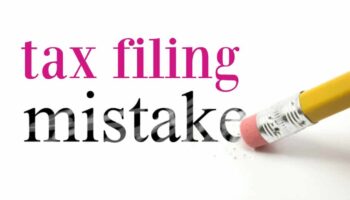Following the increase in activities in the Canadian real estate market over the last couple of years, the CRA currently has a significant audit initiative underway that will impact taxpayers buying and selling real estate. The initiative is aimed at challenging various positions taken by individuals on tax returns and forms filed with the government. Summarized below are the key areas that could be challenged with potential tax implications for the taxpayer:
Principal Residence Exemption
As you may already know, the Tax Act permits us to claim principal residence exemption on our primary residence so that any gain on the sale of our primary residence will not be taxed. The Tax Act does not specify a fixed period of time for which one must occupy a home for it to qualify as a principal residence. However, CRA looks at a number of factors, such as intention, behaviour, etc., in determining this and often times will challenge principal residence exemptions where the house is occupied for less than a year.
Where occupancy is less than one year, it is important to maintain evidence of actual residency such as keeping copies of utility bills, receipts for change of address, moving company invoice, driver’s license with the residential address, etc. If you can proof intention supported by documented evidence, you may be able to claim the exemption if challenged. Note that intention to occupy a house as principal residence is not sufficient if actual occupancy does not occur.
Principal residence must be a “capital” property for you to claim the exemption. If the property is deemed an income property, you automatically lose the principal residence exemption. Often times, CRA looks at the course of conduct whereby a taxpayer occupies a residence, renovates and sells as a regular pattern of behaviour. With this pattern of behaviour, the taxpayer may not qualify for the principal residence exemption, particularly if the taxpayer has a business of selling real property. In this case, the residence will be on the account of income rather than capital. The implications for this can be significant. First, you lose the principal residence exemption, i.e. you will pay tax on the gain; second, you will be taxed on the account of income rather than capital, i.e. taxed on 100% of the gain rather than on 50% of the gain; and third, you may be assessed a penalty for gross negligence.
Business vs. Capital
There is a significant difference if the sale of a home is considered a capital transaction vs. an income transaction. For capital transaction, you only pay capital gains taxes, i.e. only 50% of the gain is taxed while you pay taxes on 100% of the gain if it is considered a business transaction. For example, let’s assume you bought a property in 2015 for $100,000 and you sold that property this year for $120,000. Total gain on this property is $20,000 (i.e. $120,000 – $100,000). If this is considered a capital transaction, your taxable income will be half of the gain, i.e. $10,000 and you will pay about $4,000 in taxes if you have a 40% tax rate. On the other hand, if this is considered a business transaction, your taxable income is $20,000. At a 40% tax rate, you will pay a total of $8,000 in taxes. Essentially, your taxes will double if classification is changed from capital to income.
How does CRA determine if a transaction will be treated on account of capital or income? Again, CRA will look at factors such as intention and conduct. CRA will consider taxpayer’s primary and secondary intentions, however, these are very subjective and often times, may not work in the taxpayer’s favour. With respect to conduct, CRA considers adventure in the nature of trade sufficient to result in business treatment. In other words, if you have a pattern of behaviour of buying, renovating and selling real property, you will have to pay taxes on 100% of your income. In addition, if you have any knowledge of the industry – real estate agents, contractors in the industry, real estate investors, construction engineers, etc. – there is little chance you can win the argument to treat this on account of capital if you have this pattern of behaviour of buying and selling.
CRA’s position is that any knowledge of real estate industry will lead to business treatment of income resulting from the sale of real estate. Unfortunately, CRA is immovable on this position when it comes to income vs. capital, however, you can fight this through the court system if you don’t mind dealing with the related legal fees, which can be significant if you go all the way to the top court.
HST Rebate on Residential Properties
There is a residential HST rebate that can be claimed on newly constructed residential properties. The test for this is whether the property is intended as a place of residence for the taxpayer or a related person. If you fail the test, CRA will deny the HST rebate. You can find more information on this rebate on the CRA guidance RC4028. Note that there is a separate rebate for residential rental properties.
I can help
If you have any questions with respect to this topic and any tax or tax planning related questions, feel free to contact me at Green, Meikle & Smith Chartered Professional Accountants. Tel: 416-706-3491; Email: ken.green@greenmeiklesmith.com.






